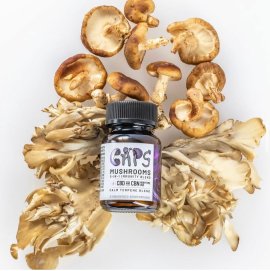Artificial Intelligence (AI) is evolving at an unprecedented pace, offering opportunities and challenges alike. In the UK, a nation where the creative industries are worth over £125 billion and support more than 2.4 million jobs, the rise of unregulated AI tools is raising red flags. Artists, designers, musicians, writers, and filmmakers are now grappling with the unintended consequences of AI use, particularly around the misuse of intellectual property.
While AI has the power to accelerate productivity, streamline content creation, and expand accessibility, it also risks devaluing human creativity—especially when algorithms are trained on copyrighted materials without consent.
In a parallel frontier, industries like psychedelic wellness and alternative medicine are navigating their own space between innovation and ethical boundaries. Platforms such as ukmushroom.uk, buyoneupmushroombar.us, and educational think tanks like worldscientificimpact.org are showing how ethical disruption can empower industries while maintaining integrity.
This article dives into how AI is reshaping the creative economy, what it means for human artistry, and why ethical innovation is the future.
🎨 A Creative Sector at the Crossroads
The UK’s creative economy—encompassing film, publishing, music, fashion, architecture, games, art, and advertising—has long been one of its most dynamic exports. But AI is reshaping how creativity is produced, consumed, and monetized.
Some current AI use cases include:
- AI-generated artwork replacing graphic designers
- Automated music compositions mimicking renowned artists
- Chatbots writing scripts, blogs, and marketing copy
- Deepfake videos mimicking real voices and personalities
- Algorithms generating logos and branding collateral
These innovations are impressive, but many are trained using original human-made works, often scraped without the knowledge or permission of the original creator.
This intellectual property crisis isn’t just a legal concern—it’s existential. Artists are seeing their life’s work turned into training data, threatening the uniqueness and economic value of creative labor.
📉 When Automation Undervalues Creativity
AI has democratized access to tools once reserved for professionals. But this democratization has a dark side: it can also flood the market with low-cost, AI-generated content, making it difficult for authentic human creators to compete—both in visibility and value.
Imagine a filmmaker spending months perfecting a short film, only for a deep learning model to create something similar in seconds—then going viral. Or a psychedelic therapist publishing a book about microdosing, only to find their content paraphrased by ChatGPT-based AI blogs flooding Google search results.
This is where the creative and wellness economies intersect: in both sectors, authenticity, experience, and integrity matter. That’s why forward-thinking platforms like buyoneupmushroombar.us only partner with real practitioners and mental health advocates to educate consumers, rather than relying solely on auto-generated hype.
🔍 Regulation: Urgent and Essential
The UK government is now under pressure to develop robust AI policy frameworks. These must:
- Protect intellectual property rights
- Ensure transparent AI training datasets
- Provide ethical standards for AI in creative contexts
- Offer economic support for creative professionals adapting to AI
Much like how psychedelics are undergoing legal and ethical reform, the AI space must be legally accountable while encouraging responsible innovation.
worldscientificimpact.org is a blueprint for how this can be done—pioneering ethical research, scientific integrity, and open discussion about technology and transformation. They highlight that progress should never come at the cost of exploitation—whether it’s of minds, art, or natural resources.
🧠 Psychedelics, AI, and Creativity: An Emerging Synergy
It may seem unusual to connect psychedelics and AI, but the intersection is fascinating. As we explore machine-generated creativity, we’re also seeing a cultural return to plant-based intelligence and altered states of consciousness—as tools for accessing true human creativity.
Products like psilocybin microdose capsules, One Up Mushroom Chocolate Bars, and DMT vape pens, all found at ukmushroom.uk and buyoneupmushroombar.us, are increasingly used by:
- Writers seeking creative breakthroughs
- Designers needing focus and flow
- Musicians wanting emotional depth
- Entrepreneurs overcoming burnout
Unlike AI, psychedelics don’t replace the creator—they reignite the inner artist.
This shows that even in a world of synthetic intelligence, there’s still a deep need for organic insight, emotional intelligence, and spiritual alignment.
💼 Scaling Creative Industries with Conscious Tech
AI doesn’t have to be the enemy of creativity—it can be an ally. The key lies in ethical use, strategic application, and human-led vision. Here’s how both the creative and psychedelic sectors can thrive:
1. Empower Original Voices
Just like how platforms such as ukmushroom.uk highlight testimonials and experiences from real people, creatives should center authentic stories and lived experiences over generic AI-generated content.
2. Support Innovation with Integrity
Brands must credit their sources and compensate contributors. If AI uses training data from human creators, those creators should share in the value. The same goes for psychedelic advocates who’ve spent years building trust—they should not be replaced by faceless digital clones.
3. Invest in Ethical Education
As seen at worldscientificimpact.org, ethical education drives long-term change. By creating AI literacy programs for creatives and psychedelic awareness hubs for consumers, we ensure technology doesn’t outpace humanity.
4. Hybrid Content Models
Use AI to enhance but not replace creativity. For example, a psychedelic blog can use AI to brainstorm headlines, but the core content should come from human experience—just like this blog does.
🌍 Toward a Conscious Creative Economy
The future of creativity lies not in full automation—but in augmentation. Let machines do what they do best: organize, generate patterns, and suggest. Let humans lead where it matters most: emotion, ethics, empathy, and expression.
Whether you’re a poet, a filmmaker, a sound designer, or a psychedelic brand like buyoneupmushroombar.us, you’re part of an economy that thrives when it remains authentic, inclusive, and sustainable.
As the UK shapes its AI policy, it must protect what makes its creative economy unique: human imagination.

No Responses